Xavier Tondo: A victim of circumstance
A posthumous tribute to enthusiastic Spaniard
The latest race content, interviews, features, reviews and expert buying guides, direct to your inbox!
You are now subscribed
Your newsletter sign-up was successful
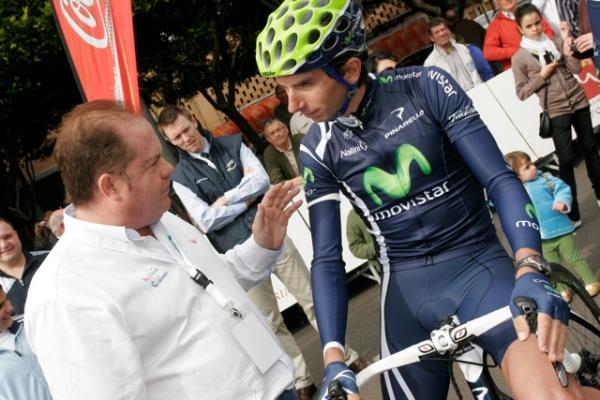
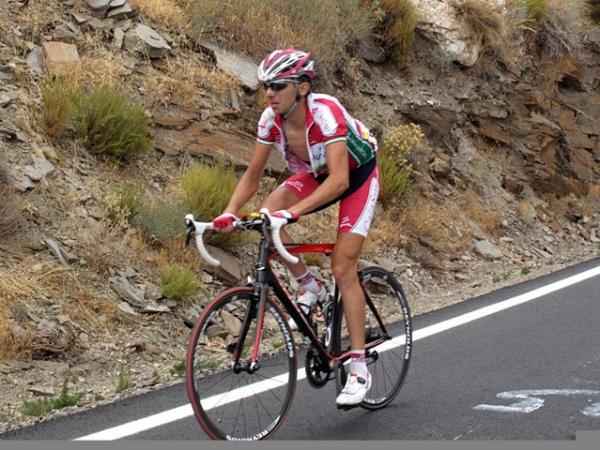
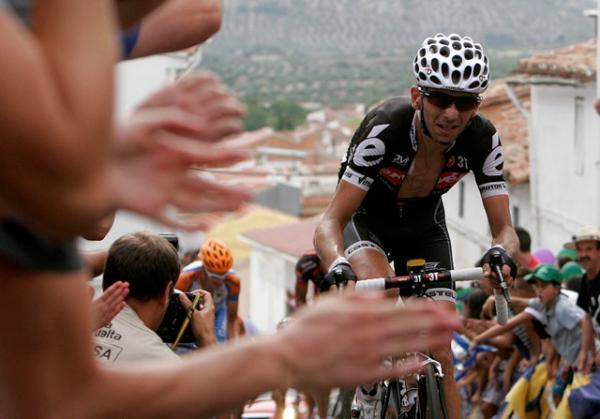
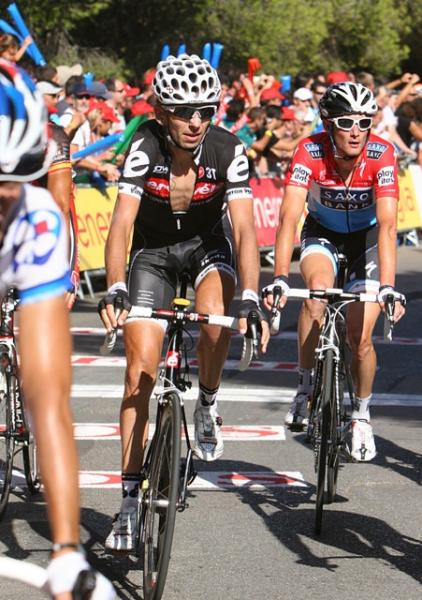
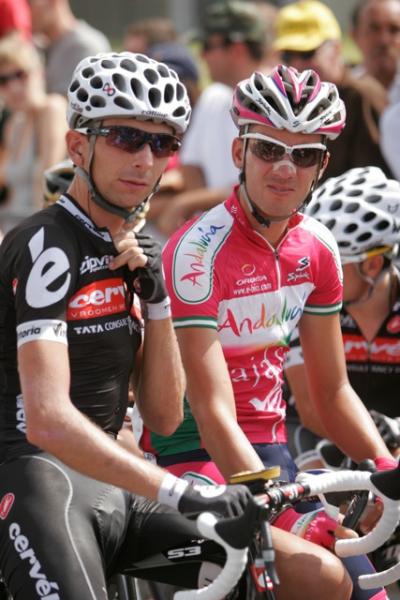
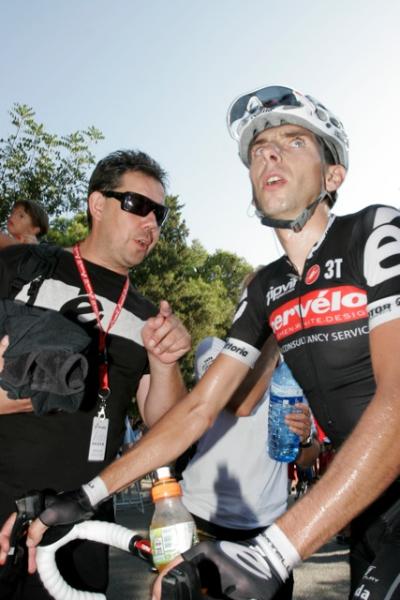
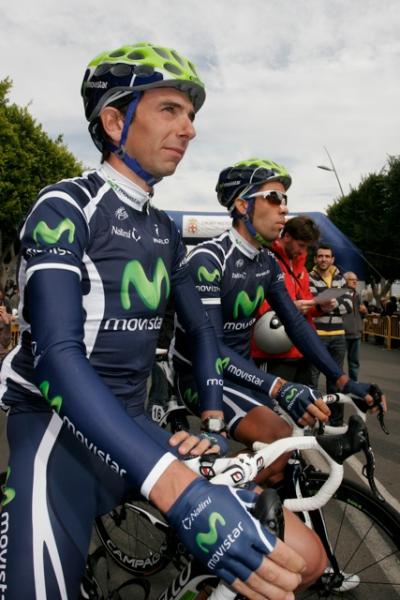
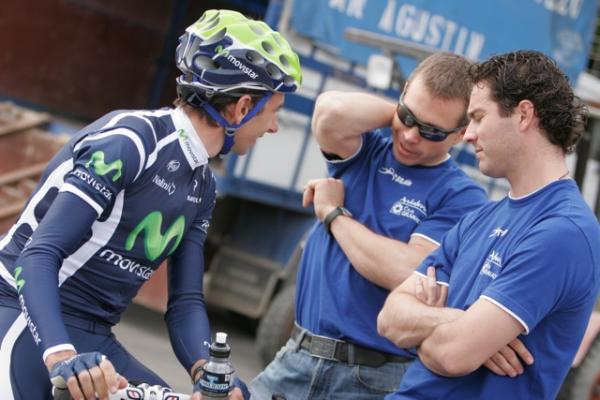
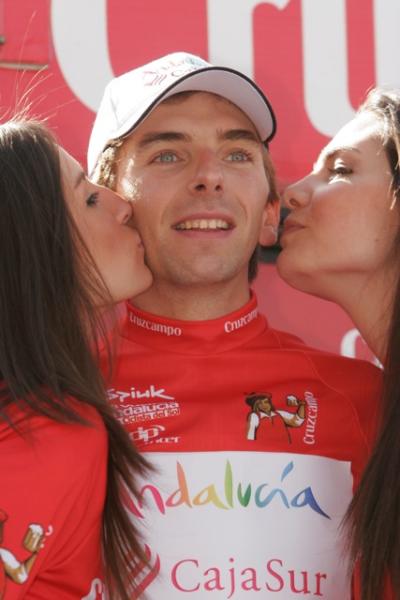
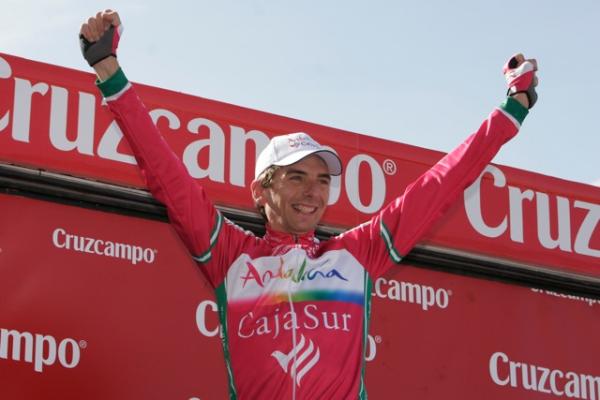
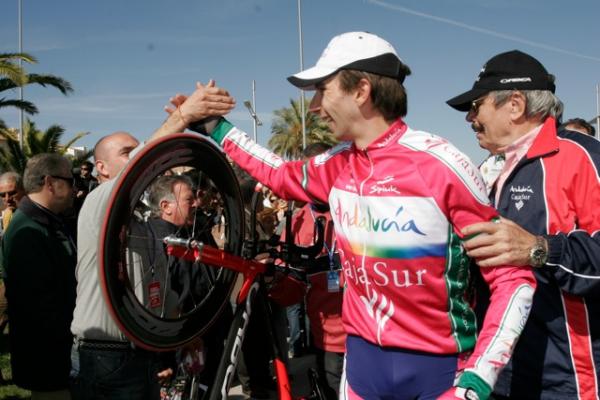
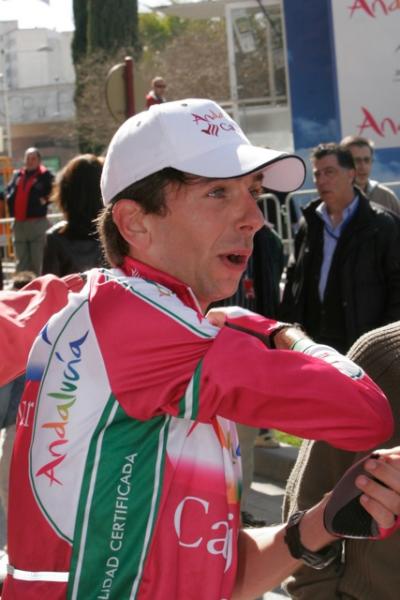
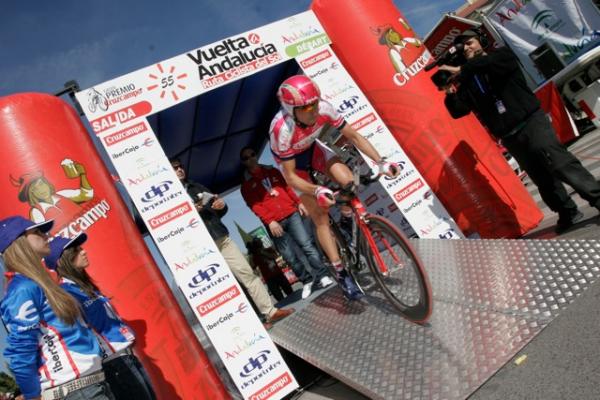
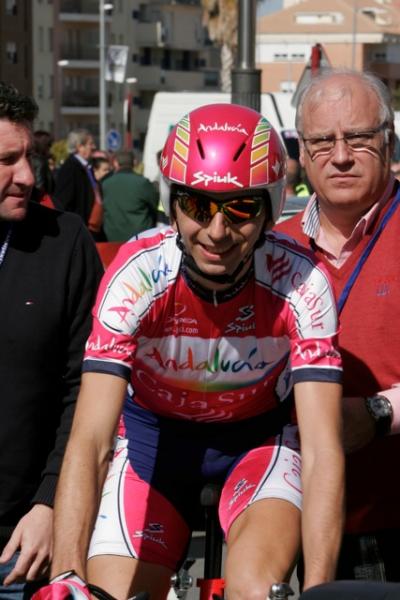
When the interview for this feature took place, Xavier Tondo was just a few weeks from being killed in a freak accident before a training ride in Sierra Nevada. Whilst writing this article that fatal accident occurred and so the following is a posthumous tribute to his enthusiasm and love of cycling; Tondo personified the spirit that makes our sport great and he will be sorely missed.
'Just a victim of circumstance
Didn't you know
Just a victim of circumstance
Doesn't it show
I'm just a victim of circumstance
Wherever I go'
I had Joan Jett and the Blackhearts' 1981 hit 'Victim of Circumstance' ringing in my ears as I left my apartment, when I met with Xavier Tondo for a chat in Girona, just 40km away from his home in Olot. It was a pleasant 25 degrees in the Spanish spring and most 'bike people' worth their salt would want to be riding. Tondo was no exception and lamented the fact he'd been told he couldn't train for the week; 'coach's orders'.
I asked if he wanted to be heading to the beach – surely he'd love a trip to the coastal towns of Tossa de Mar or Lloret de Mar, only 30 minutes' drive away – but the Movistar rider said he'd rather be riding. The guy wasn't just a professional, his was a love affair with the bike. And if he had lined up for this year's Tour de France, the 32-year-old's debut in the world's best-known race would have been the culmination of years of frustration and a seemingly fruitless battle against circumstance.
It's a word that plagued his career and shaped it – but in 2011, circumstances seemed to be working in Xavi Tondo's favour. That was, until circumstance claimed his life.
Whether it be a crash in 2000 that left him with a broken leg, wiped out his season and delayed the real start of his career, his relationship with teammates and management or the scandal that unfolded around him late last year when, as he tells me, he was simply doing what was right to do, it was all about the circumstances.
Consequently, Tondo's first participation in the Tour de France would have come later in life than it probably should have, during a year that started brilliantly for the Movistar rider, winning the general classification in the Vuelta a Castilla y Leon. "It was my first overall win since the Tour of Portugal in 2007. I had started to think, 'There's a lot of second and third places' but this year I thought, 'Maybe it's time to win'."
The latest race content, interviews, features, reviews and expert buying guides, direct to your inbox!
It was vindication of his recruitment by team manager Eusebio Unzué, which had its origins in Tondo's meticulous preparation for races; whilst recovering from a broken collarbone sustained in a crash last year, Tondo was out doing reconnaissance on a stage of the Vuelta a España.
Just several days after surgery, he was riding on the road rather than the trainer and explained that suddenly a Volvo appeared on the road and he recognised the occupant – Unzué.
So impressed was the veteran team manager with Tondo's dedication, despite being injured, that he signed the man born near Tarragona, about 200km from where we sat talking about his early career but in particular, his big break with Cervélo TestTeam. He spent last season with the fledgling outfit that merged with Jonathan Vaughters' Garmin-Slipstream squad in late 2010.
A big change
Having ridden for the likes of Portuguese squads Barbot-Gaia and LA-MSS and Spanish outfits Relax-GAM, Catalunya-Angel Mir plus Andalucia-Cajasur, the move to Cervélo signified a massive change in circumstances for Tondo.
"Alex Sans Vega was the directeur sportif who really believed in me to make the jump from a little team to a big team," said Tondo. "After five years making good results and winning races every year (although in 2006 I had mononucleosis and a big crash in July) nobody wanted to give me an opportunity to race in a big team. I started to lose the illusion of being able to ride for a big team."
"Then I asked myself: 'What do I need to do to get an opportunity to ride for a big team?' At the beginning of November [2009] Alex called me and asked why I didn't have a new contract. I explained the situation that different teams had contacted me but nobody wanted to see me. I don't know why. Sometimes I asked many sports directors why they didn't believe in me; But finally Alex believed in me and made a lot of pressing to Cervélo, after which they decided to give me a chance to race for them for one year. I think since the first moment I showed that there were right to sign me.
"I always believed in myself; I just said the same to all the sports directors: 'Give me an opportunity, it's enough for me. I'm sure in six months that you'll want to sign me for three years'. I know the way I work, getting good results year-by-year, being consistent and if I'm not sick or crashing, I'm always there in the top 10. If all the circumstances are normal, I can be there. I just want an opportunity to try and show this."
And Tondo proved this in 2010, winning stage six of Paris-Nice after an impressive attacking ride. Then he won the third stage of his home race, the Volta a Catalunya, in which he finished second overall. His Giro d'Italia was plagued by illness and had it not been for more unfortunate circumstances there's the chance he could have been a top 10 finisher in his first grand tour.
"In the Giro, after two weeks, I was third on GC but I had problems with my health and I raced with fever," he explained. "I had a cold and then it was impossible for my body to recover daily; my body just exploded after two weeks."
Triumph and complications
Despite his Giro setback, Tondo's time in a grand tour would come later in the year, at the Vuelta, where not only was his sixth place overall a revelation to many, it also revealed some shortcomings in his place amongst Cervélo's roster, given that he was riding in the same squad as 2008 Tour de France champion Carlos Sastre.
"When I think about Cervélo my goal was to try and help Carlos in the big races," said Tondo. "In other races I had my opportunities but for the GC on the big tours I knew that I had to support Carlos and try to help him win. Last year was really complicated because I needed to respect the deal.
"At some moments I thought I showed that I was in better shape than Carlos but if I made the deal I needed to respect it. Even though I respected this deal, at the Vuelta a España I finished sixth and he finished eighth. I didn't race against Carlos – I raced to try and do my best. In some moments I felt that with more support from the team in some races I could have done better on the GC."
Despite the complications surrounding his time at Cervélo, Tondo remained philosophical about his fate, which was to take a turn for the worse soon after our meeting. "Last year is last year; This year, from the first moment we started to talk that I could sign with Movistar, Eusebio told me that he believes that I can ride well in GC [at grand tours]," he said with enthusiasm.
"This year I want to discover the Tour de France – it's a new challenge for me and I know it's complicated but I want to enjoy the passion of it and see it day-by-day," he told me. "I don't want to go there with big goals. I think that last year was good for me; I finished sixth in the Vuelta a España and why shouldn't I think that the Tour de France can be a good race for me? I don't want to say that I can win, but I think that I can do a good race."
There will now be no opportunity for Tondo to demonstrate what he can do at the world's biggest race after he was killed in a freak accident this week; about to begin training at altitude (he headed to Sierra Nevada the day after our interview), he was about to embark on an important chapter in his career and his life.
A mysterious email
While Tondo's life on the bike was shaped by circumstance, events off it also caused him problems. He was embroiled in controversy late last year when he informed police via email that he had been offered doping products by people in the Girona area; after telling me that he hasn't spoken to the media about this, he had a spin on the matter that was typical of his attitude to cycling and reflected his love of the sport – he admitted that he was lucky to be a professional cyclist and those who couldn't understand this were the ones trying to sell him prohibited substances.
He was hailed as a hero for his stance on the matter but brushed off this tag, explaining that he was merely doing what he had to do, given that the sale of these substances is illegal in Spain. "I never talk with the media about this," he told me when I broached the subject, adding that it was nothing special and that as an athlete it was a matter of pride that doping be battled in whatever way possible.
"I'm proud to be a rider and I'm proud of my sport and I'm proud because we accept the rules that other sports don't accept and I'm proud that they come to visit me at six in the morning to test me because for me, it's the way to show that my sport is a clean sport. If someone doesn't want to go this way they will be caught."
They were the words of a man whose passion was first and foremost with the bike. He didn't like football, explaining that the players in his home region of Catalunya received too much attention and the press in that part of Spain only focused on that sport. When they did touch on cycling, coverage focused on crashes and doping. "I'm disappointed they don't respect my sport," he told me. "This is the problem and I don't understand."
Unwavering dedication
The reason for his disappointment sprang from that deep-seated passion for the sport. "I just like to be cycling. If I'm not racing, I need some to watch some on the TV," he said. "I really like watching it on TV and I like to take care of my bikes, I always like to be involved and if someone buys a new frame he comes to my garage knowing that in one afternoon I can build it. I also like to build wheels; if I need to change something, I can do it."
He offered me help with mechanical work on my bike, any time I wished, and it flattered me – can you imagine any other professional rider offering to act as a mechanic on the bike of a journalist? It's epitomised Tondo's humility and his pure love of the sport.
"I worked for many years in a bike shop in my hometown," he explained. "Every year the owner would go to the Vuelta a España to work for the organisation and someone needed to look after the shop's services. I did it for seven or eight years and then you learn to do all these things.
"I know some professionals who don't like to talk about cycling all the time and I respect that; I really like it, however! What can I do?"
He came from a family which didn't do sport but told me, "When I was young I had a lot of energy – I always did different things and my mum realised I needed to do sport. When I was 13 or 14 I started to discover cycling because in these years it was either cycling or football and [five-time Tour de France champion, Miguel] Indurain was big.
"At this point I didn't think about being a professional; I began to enjoy it and day-by-day I liked it more. At 18 or 19 I started to dream about being a pro rider. I'm happy because I did it. I'm sure that I'm like I am because I did it the hard way. Maybe if I was 21 and became a pro and didn't break my leg, I wouldn't be the same guy."
Regardless of what type of guy he could have been, one thing was for certain: in 2011 Xavi Tondo seemingly had the world at his feet after a range of setbacks in his professional life; That life came to an abrupt end just when it was really about to take off.
Alberto Contador summed up the essence of Tondo in a Twitter message upon hearing of his countryman's death: "He was an incredible person who loved this sport like nobody else. You will be missed."
And after Movistar teammate Vasiliy Kiryienka dedicated his stage win at the Giro d'Italia – having taken a solo victory on the tough penultimate day that included a passage of the Colle delle Finestre – to Tondo, he too captured what made the Spaniard so likeable:
"I didn't know Xavi really much, but shared some moments with him in the Ardennes classics week and he was an enthusiastic person in cycling," he said. "We decided that the best form to pay him tribute was staying in the Giro, and I think we made a good choice because winning in such a hard mountain stage and into such a long break, it was a kind of winning that he liked so much."
